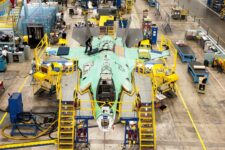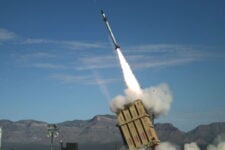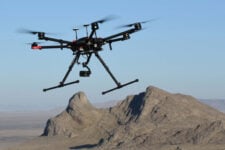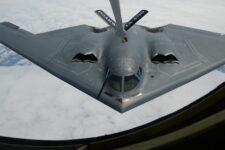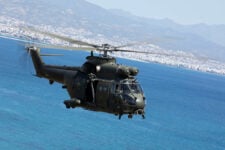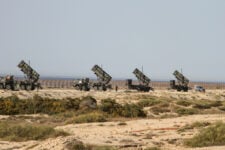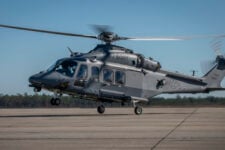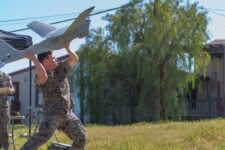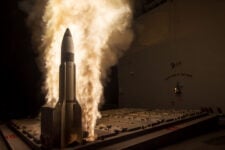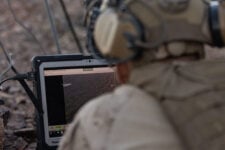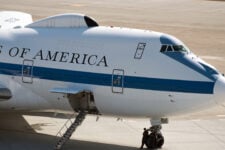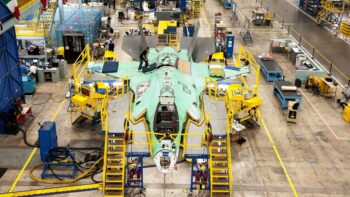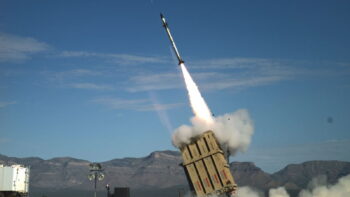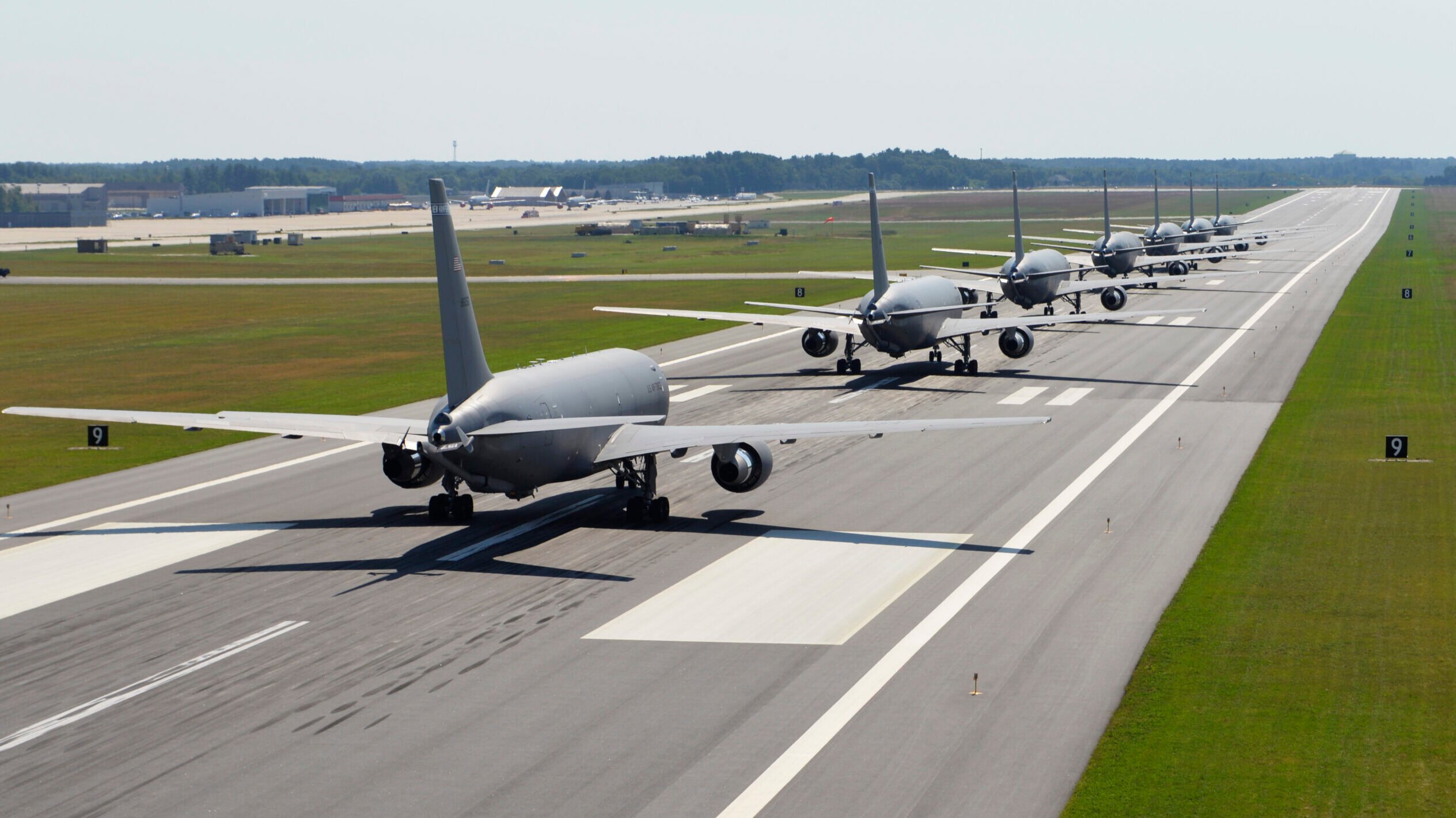
KC-46A aircraft assigned to the 157th Air Refueling Wing perform an elephant walk formation on the runway at Pease Air National Guard Base, Sept. 8, 2021. (U.S. Air National Guard Photo by Senior Master Sgt. Timm Huffman)
WASHINGTON — Boeing’s defense business booked $222 million in losses across its portfolio of fixed price development programs during the first three months of 2024, the company said today.
The KC-46 tanker program logged a $128 million charge, while the T-7 trainer program took a $94 million hit, Chief Financial Officer Brian West said during a first quarter earnings call.
Before the COVID-19 pandemic and 737 MAX crashes of 2018 and 2019, Boeing racked up a list of major wins on fixed-price programs such as the Air Force trainer jet program, now known as T-7, the Navy’s MQ-25 tanker drone, and a new Air Force One aircraft. However, under the conditions of a fixed-price contract, a company is forced to shoulder any costs over a certain price threshold — terms that have led to billions in charges for Boeing during a tumultuous time period for its commercial segment.
West said the KC-46 “continues to show good progress” in terms of retiring risk, but the Boeing 767 derivative is “impacted somewhat” as the company’s commercial arm reduces traveled work, or production that takes place outside of the normal timeline or work station.
An award for KC-46’s next production lot later this year will help improve overall cash flow throughout the year, he added.
Despite the charges, overall earnings for the aerospace giant’s defense sector — known as Boeing Defense, Space and Security (BDS) — showed a marked improvement compared to the same period last year, with revenues climbing 6 percent to almost $7 billion and operating margins shifting from a 3.2 percent loss in 2023 to 2.2 percent in 2024.
CEO Dave Calhoun, who is exiting the company by the end of the year, said the defense unit would be “progressing toward more historic levels of performance” in 2024. The defense business has operated at a loss since 2022, largely due to post-pandemic supply chain impacts and technical issues associated with fixed-price programs that have driven up costs.
West characterized the defense unit’s financial performance as “another quarter of sequential improvement, but still more work to do,” adding that the company’s plan to get BDS back to high single-digit margins by the 2026 timeframe “remains intact.”
Boeing executives also provided an update on a potential acquisition of Spirit AeroSystems, a former Boeing spin off that produces major sections of the fuselage on all of the company’s commercial jetliners and commercial derivatives like the KC-46 and P-8 maritime surveillance aircraft.
West said the company believes “in the strategic logic of a deal,” but added that it will take time to iron out the details.
“As with any large and complex deal, there are a number of terms and issues we need to work through including price, financing and other key items, and the best approach to handling and potentially divesting certain work that Spirit does for other customers,” West said, alluding to commercial jetliner production work performed for Boeing’s arch-rival Airbus.
Lockheed, Howmet settle lawsuit over F-35 titanium (EXCLUSIVE)
Lockheed Martin alleged in court filings that Howmet cut off the supply of titanium after the aerospace giant refused to agree to higher prices, threatening production of the F-35.
